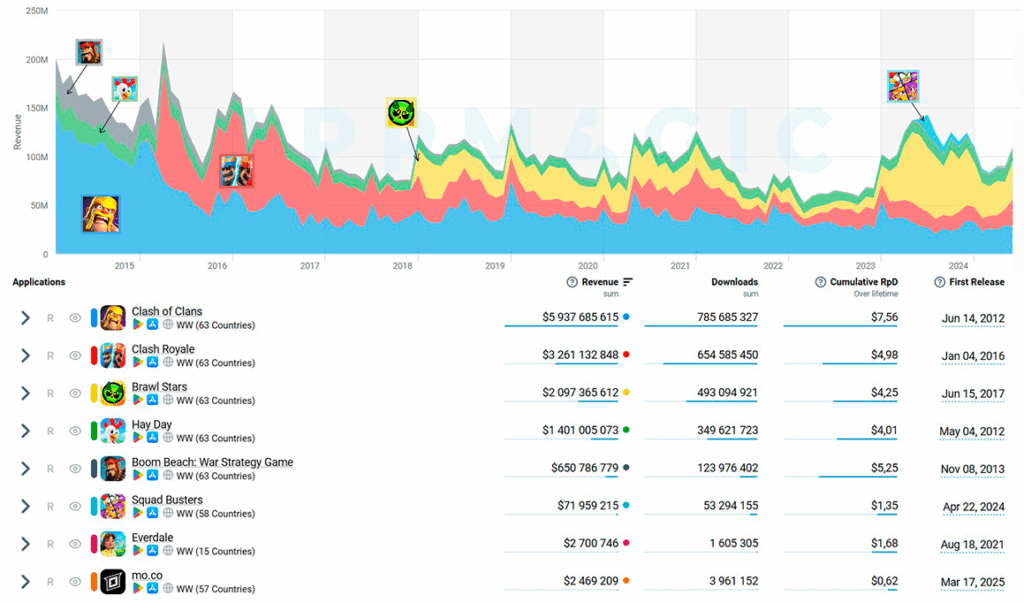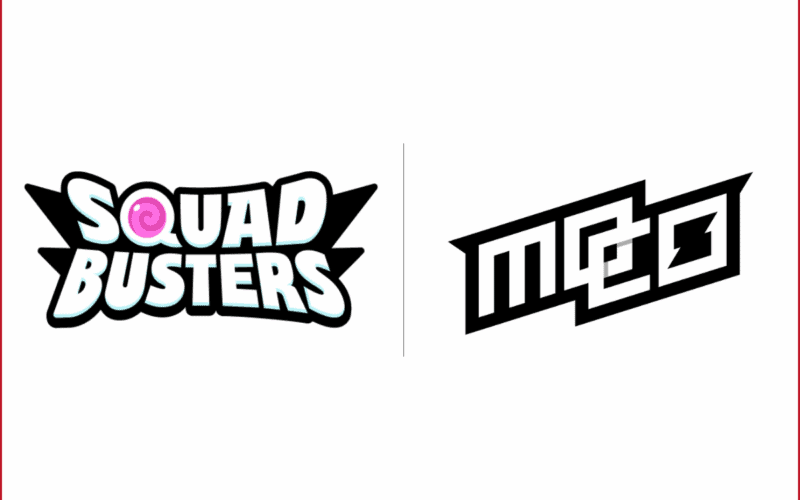After nearly six years without global releases from one of the most influential studios in mobile gaming, Supercell returned with two bold launches: Squad Busters on April 22, 2024, and mo.co on March 17, 2025.
This time, however, things didn’t go the way most would expect.
Both mo.co and Squad Busters took an experimental route, skipping the typical soft launch process. That gamble didn’t quite pay off—neither title has become a breakout success, and their early metrics were very modest for a studio with such a track record.
Still, that’s exactly why both games are worth examining. They reflect how even the most successful studios take creative risks and test new directions that might influence the industry in the future. These launches show Supercell’s strategic choices and evolving internal focus, giving us a chance to break down what worked, what didn’t, and why.
One year after its release, Squad Busters earned around $70M in total revenue, which is far behind Brawl Stars’ $340M in its first year. And it goes further: in May 2025, the game generated only $1.2M—a monthly low either Brawl Stars or Clash Royale never saw after their global launches.

As for mo.co, it’s difficult to compare it directly to Supercell’s earlier hits, since it’s still technically in its soft launch, albeit an unusual one. Still, the $2.5M it brought in over three months is clearly far from the studio’s usual performance.
Now that the dust has settled and both games have had some time to prove themselves, we can speak more confidently about what worked and what didn’t. We’ve broken down our analysis into four key areas:
- Launching the Games: The Experimental Era
Both titles skipped the usual soft launch route: one went straight to global, the other hid behind an invite wall. We’ll look at why Supercell took those risks, what held up, and what didn’t go as planned.
- Gameplay and Progression: Focusing on Opposite Audiences
One started too casual and had to grow into midcore, while the other went all-in on midcore from the start and maybe pushed it a bit too far.
- Monetization: Pay-to-win vs Cosmetics Only
The games launched with opposite strategies: one focused on gameplay advantages with no cosmetics, while the other was built entirely on cosmetics and self-expression. We’ll look at why both approaches seem to have fallen short in the long run.
- LiveOps: Leaning Too Hard on the Core Loop
Using our LiveOps & Updates Calendar, we have discovered that both games leaned on structured events, milestone rewards, and seasonal passes. With most of them tied to core loops that still lack polish and variety, even the best systems start to feel repetitive.
Going deeper into these four elements, AppMagic also evaluated where both games might go next and what that might reveal about Supercell’s bigger strategy in the full version of the article.





